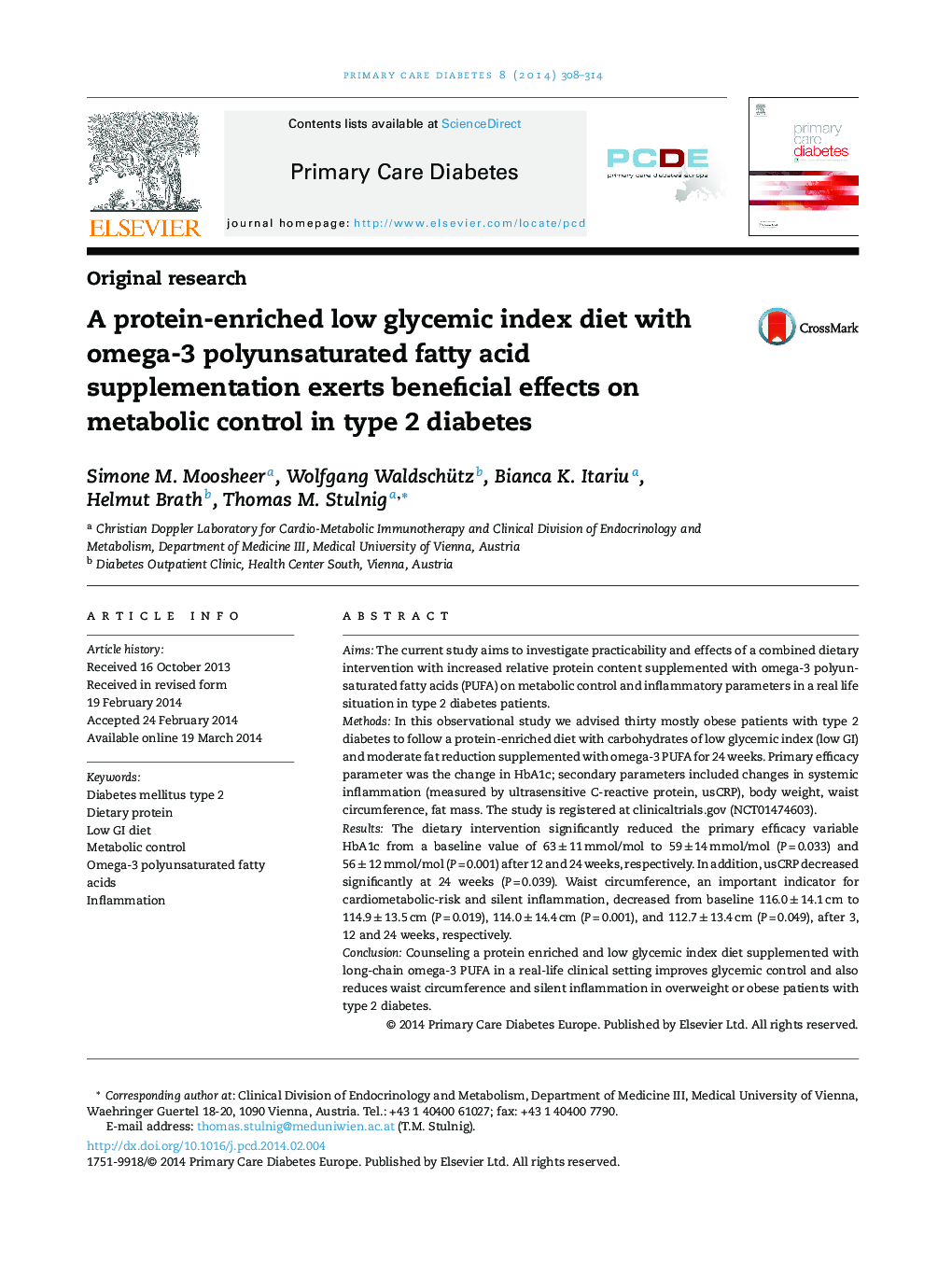| Article ID | Journal | Published Year | Pages | File Type |
|---|---|---|---|---|
| 2678916 | Primary Care Diabetes | 2014 | 7 Pages |
AimsThe current study aims to investigate practicability and effects of a combined dietary intervention with increased relative protein content supplemented with omega-3 polyunsaturated fatty acids (PUFA) on metabolic control and inflammatory parameters in a real life situation in type 2 diabetes patients.MethodsIn this observational study we advised thirty mostly obese patients with type 2 diabetes to follow a protein-enriched diet with carbohydrates of low glycemic index (low GI) and moderate fat reduction supplemented with omega-3 PUFA for 24 weeks. Primary efficacy parameter was the change in HbA1c; secondary parameters included changes in systemic inflammation (measured by ultrasensitive C-reactive protein, usCRP), body weight, waist circumference, fat mass. The study is registered at clinicaltrials.gov (NCT01474603).ResultsThe dietary intervention significantly reduced the primary efficacy variable HbA1c from a baseline value of 63 ± 11 mmol/mol to 59 ± 14 mmol/mol (P = 0.033) and 56 ± 12 mmol/mol (P = 0.001) after 12 and 24 weeks, respectively. In addition, usCRP decreased significantly at 24 weeks (P = 0.039). Waist circumference, an important indicator for cardiometabolic-risk and silent inflammation, decreased from baseline 116.0 ± 14.1 cm to 114.9 ± 13.5 cm (P = 0.019), 114.0 ± 14.4 cm (P = 0.001), and 112.7 ± 13.4 cm (P = 0.049), after 3, 12 and 24 weeks, respectively.ConclusionCounseling a protein enriched and low glycemic index diet supplemented with long-chain omega-3 PUFA in a real-life clinical setting improves glycemic control and also reduces waist circumference and silent inflammation in overweight or obese patients with type 2 diabetes.
